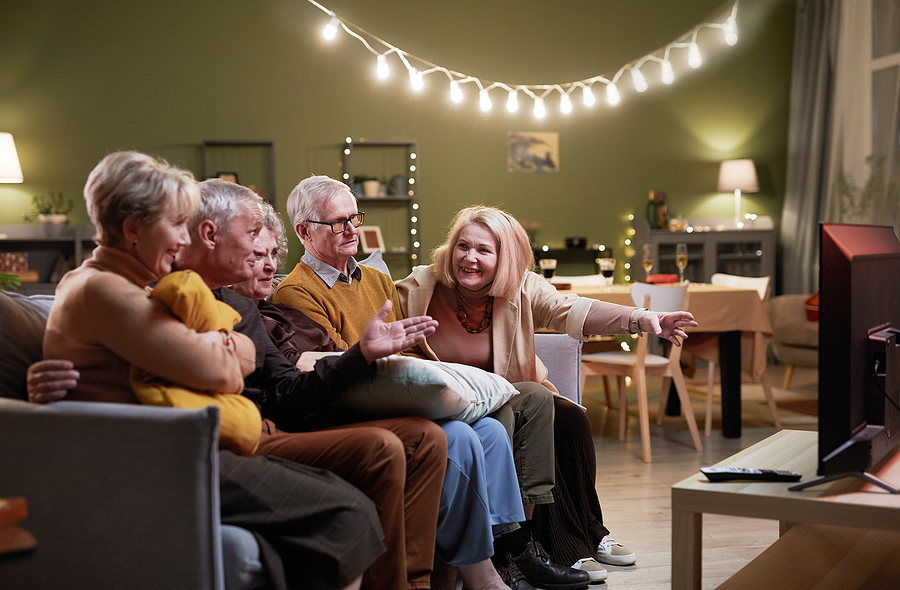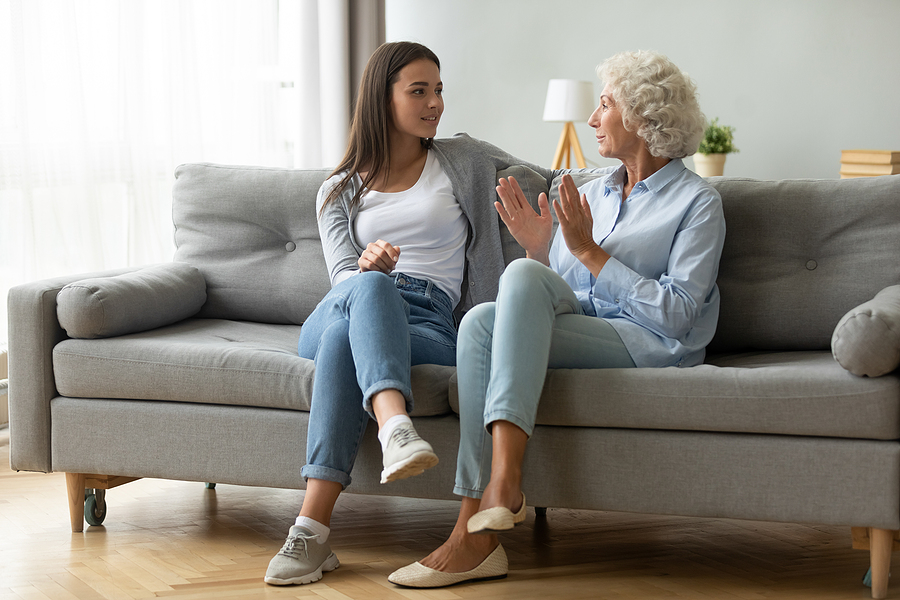One simple change to your daily routine could improve your mood, decrease stress, give you more energy, and help you sleep better at night. While it may sound too good to be true, these are the proven benefits of sunshine in the morning.
How does it work? Early morning exposure to sunlight tells your circadian clock what time it is in a way that indoor artificial lighting cannot. Morning light tells your body to increase cortisol and decrease melatonin, which helps wake you up and feel alert. It also sets you on the right track for feeling sleepy at the right time. The result is better energy during the day and better sleep at night.
It’s an easy step to take, but there are a few things to keep in mind. Keep reading for the answers to questions you may have about the benefits of sunlight for seniors.
What Time Do I Need To Be Outside — And For How Long
You don’t need to make a mad rush for the door in your pajamas. Most experts suggest getting outside within an hour of waking up. There is no universally correct time; it’s a question of when you wake up. On a sunny day, just five to 10 minutes of sunlight exposure is sufficient. Your body can still get what it needs on a cloudy day, but you’ll want to spend at least 15 minutes outside. If it’s dark when you wake up, flip on a few bright lights and get outside as soon as you can.
What Do I Do When Outside?
Anything you want. You can walk the dog, eat breakfast, read a book, or just sit in a chair and enjoy the moment. The important thing is that you look in the direction of the sun (not directly at the sun!) so that your eyes get maximum exposure. You don’t want to wear sunglasses, which block the wavelengths that wake you up, but regular glasses and contact lenses are fine.
What’s The Science Behind The Benefits of Sunlight For Seniors?
In 2002, a research paper published in the Journal of Science established that our eyes have photoreceptors that have neural connections to the suprachiasmatic nuclei of the hypothalamus, which serves as our circadian clock. That means that the type of light our eyes take in helps regulate both cortisol (which makes us alert) and melatonin (which makes us sleepy).
How Else Can I Control Light To Sleep Better?
The natural morning light that helps us feel alert is in the white and blue spectrums. The afternoon sun, in contrast, is in the yellow and orange spectrums and prepares your body to wind down. Be aware that all of your devices emit blue light. So if you’re watching TV late at night or are on your tablet, phone, or computer you’ll be signaling your body to stay alert. Avoiding screens late at night, wearing blue light-blocking glasses, or putting your device in night mode are all possible solutions.
Where Can I Learn More?
Dr. Andrew Huberman is a neuroscientist and host of the podcast Huberman Lab. He’s also one of the biggest proponents of morning sunlight. This segment from one of his podcast episodes fully explains the benefits of early morning sunlight exposure.
More Benefits of Sunlight for Seniors
In addition to regulating your circadian rhythm, sunlight exposure has numerous other benefits. According to the National Institutes of Health. Those benefits include:
- Helps protect older adults from osteoporosis.
- Reduction of inflammation.
- Modulation of cell growth, neuromuscular and immune function, and glucose metabolism.
- May be protective against anxiety and depression.
Living Your Best Life at The Oaks at Denville
At The Oaks at Denville, we promote wellness every day, in everything we do through our award-winning LivWell program. In addition to our state-of-the-art fitness center, you’ll find a heated indoor pool and plenty of walking trails on our Denville, New Jersey, campus. Interested in taking a tour? Use this quick form to schedule a visit. Whether you like working out or enjoy happy hour with friends (or both!) you’ll find it in our active senior living community.



